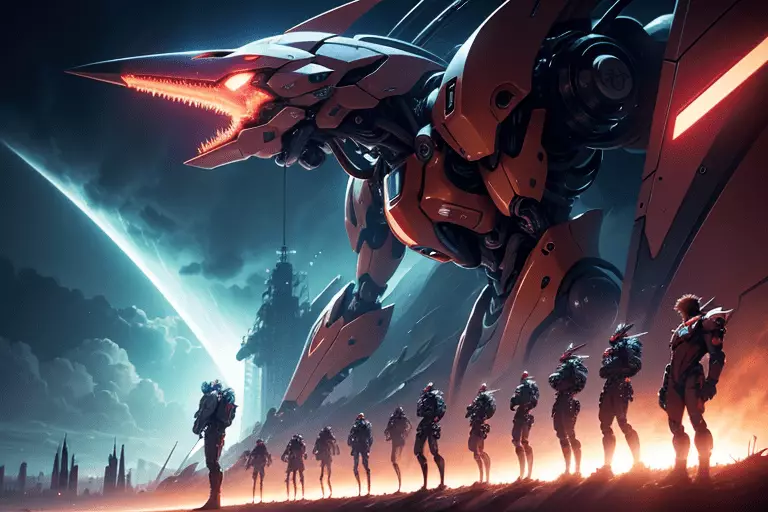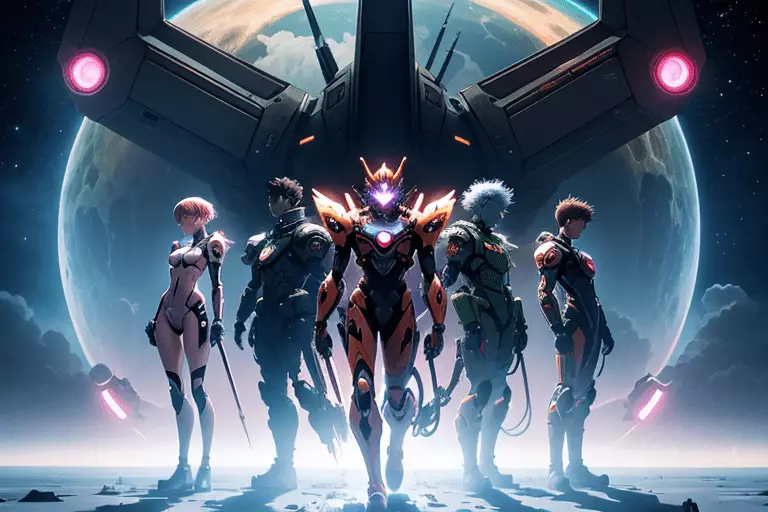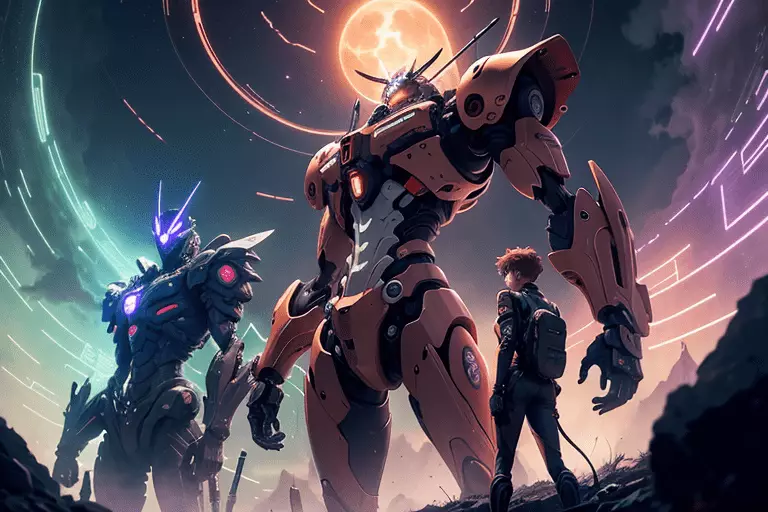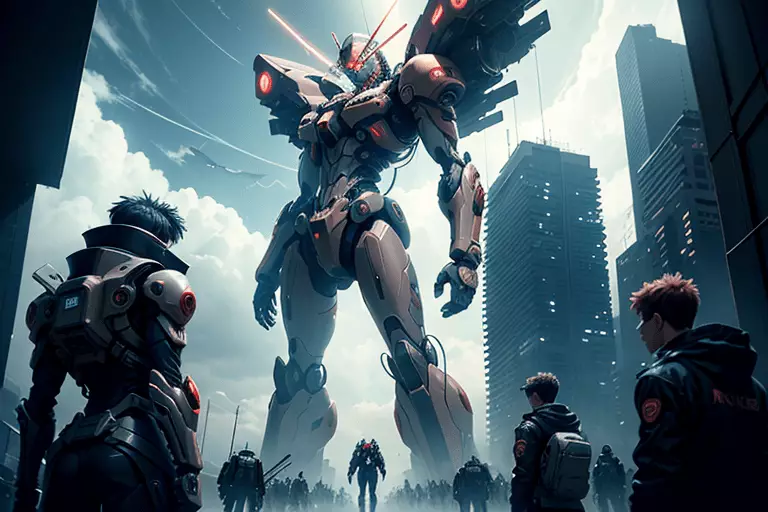Neon Genesis Evangelion – A General Introduction

Neon Genesis Evangelion (commonly referred to as Evangelion or NGE) is an anime series that has become a cult classic since its release in 1995. Created by Hideaki Anno and produced by Gainax, the series quickly gained a following due to its complex themes, psychological depth, and stunning animation.
The series is set in a post-apocalyptic world, where Earth is under attack by beings known as Angels. The only hope for humanity lies in the hands of teenagers piloting giant bio-mechanical robots known as Evangelions. The main protagonist is Shinji Ikari, a socially awkward and introverted teenager who is forced to pilot Evangelion Unit-01 to fight the Angels. Along with his fellow pilots, Asuka Langley Soryu and Rei Ayanami, Shinji must confront not only the Angels but also his own personal demons.
The series has been praised for its complex characters and their psychological struggles. Shinji, in particular, is a fascinating character, as he is forced to confront his own feelings of worthlessness and abandonment while also battling the Angels. He is a character that viewers can sympathize with, as he struggles with the weight of the world on his shoulders.

The other pilots are equally complex. Asuka is an overconfident and abrasive individual who uses her cockiness to mask her own insecurities. Rei, on the other hand, is quiet and reserved, with a mysterious past that is slowly revealed over the course of the series. These characters are not simply archetypes but fully fleshed out individuals with their own unique personalities and motivations.
Another aspect of the series that has contributed to its popularity is its exploration of themes such as existentialism, religion, and psychology. The series touches on subjects such as the nature of human existence, the relationship between the individual and society, and the search for meaning in a seemingly meaningless world. The show also heavily features Judeo-Christian symbolism, which has been interpreted in a variety of ways by viewers and scholars alike.
Perhaps the most controversial aspect of the series is its ending. The final two episodes of the show are widely regarded as polarizing due to their abstract and surreal nature. The episodes delve deep into the minds of the characters, exploring their deepest fears and desires. The ending has been criticized for being confusing and unsatisfying, but it has also been praised for its willingness to take risks and to challenge the audience.

The ending was so divisive that it prompted the creation of two movies: Death and Rebirth and The End of Evangelion. The former is a recap of the series, while the latter is an alternate ending that expands on the events of the final two episodes. The End of Evangelion is a visually stunning and emotionally charged film that provides closure for the characters and the story.
Neon Genesis Evangelion is a complex and thought-provoking anime series that has stood the test of time. Its characters are deeply flawed and relatable, and its exploration of existentialism, religion, and psychology make it a unique viewing experience. While its ending may not be for everyone, it has become a defining characteristic of the series and a topic of debate among fans. Whether you love it or hate it, there is no denying the impact that Evangelion has had on the anime industry and on popular culture as a whole.







